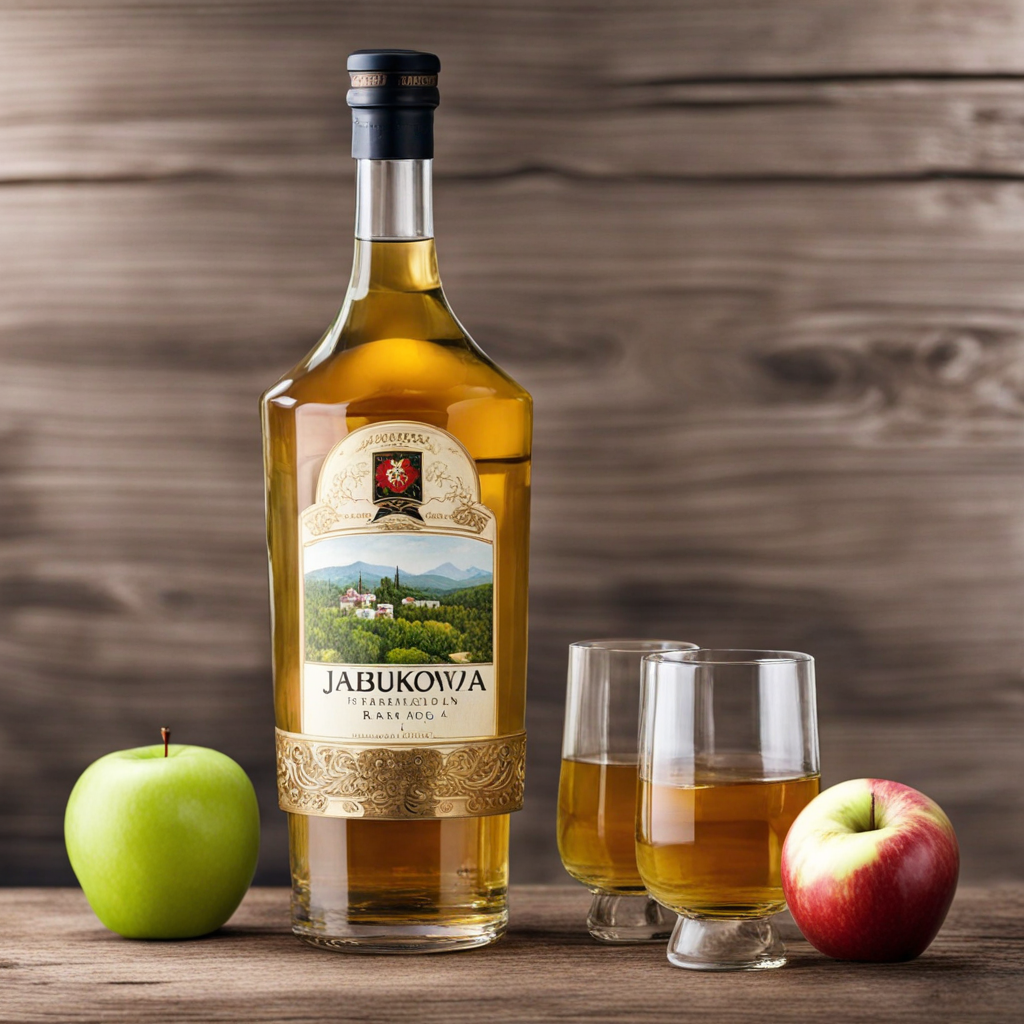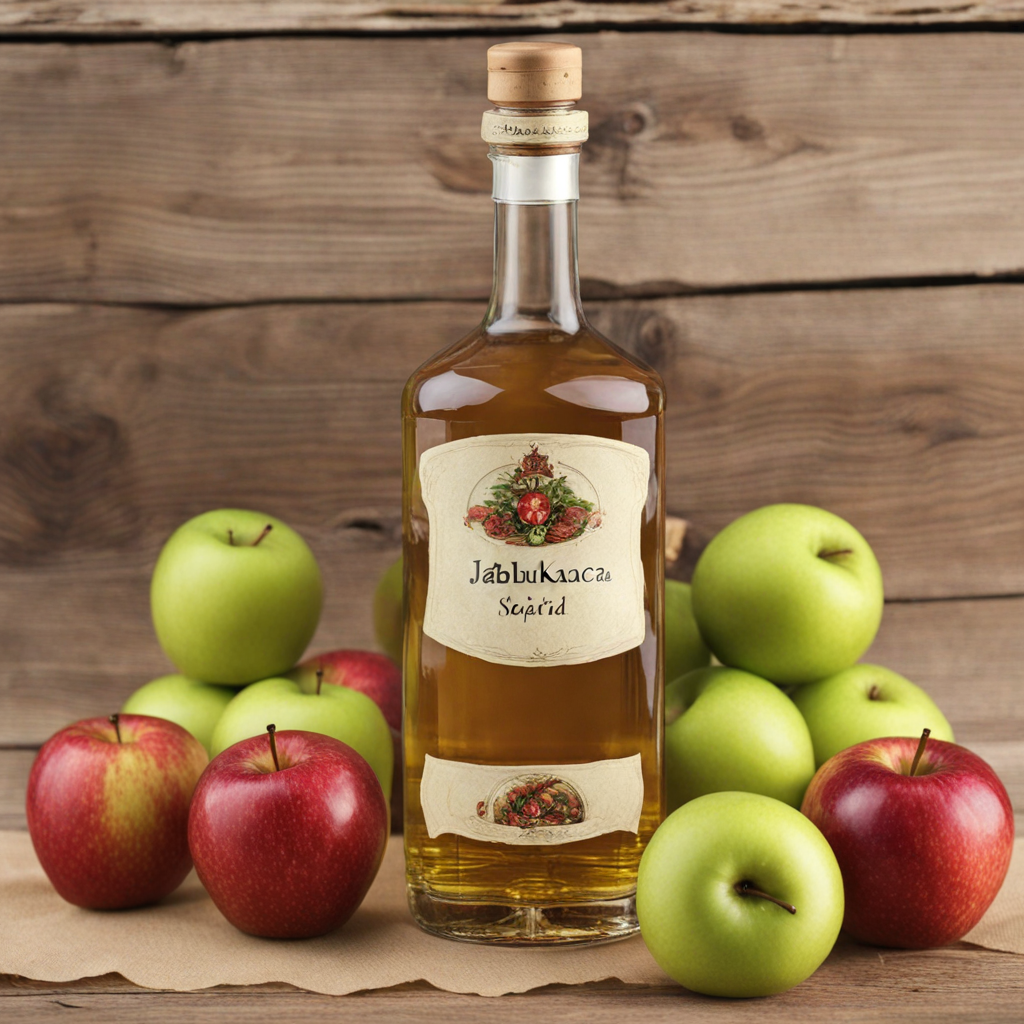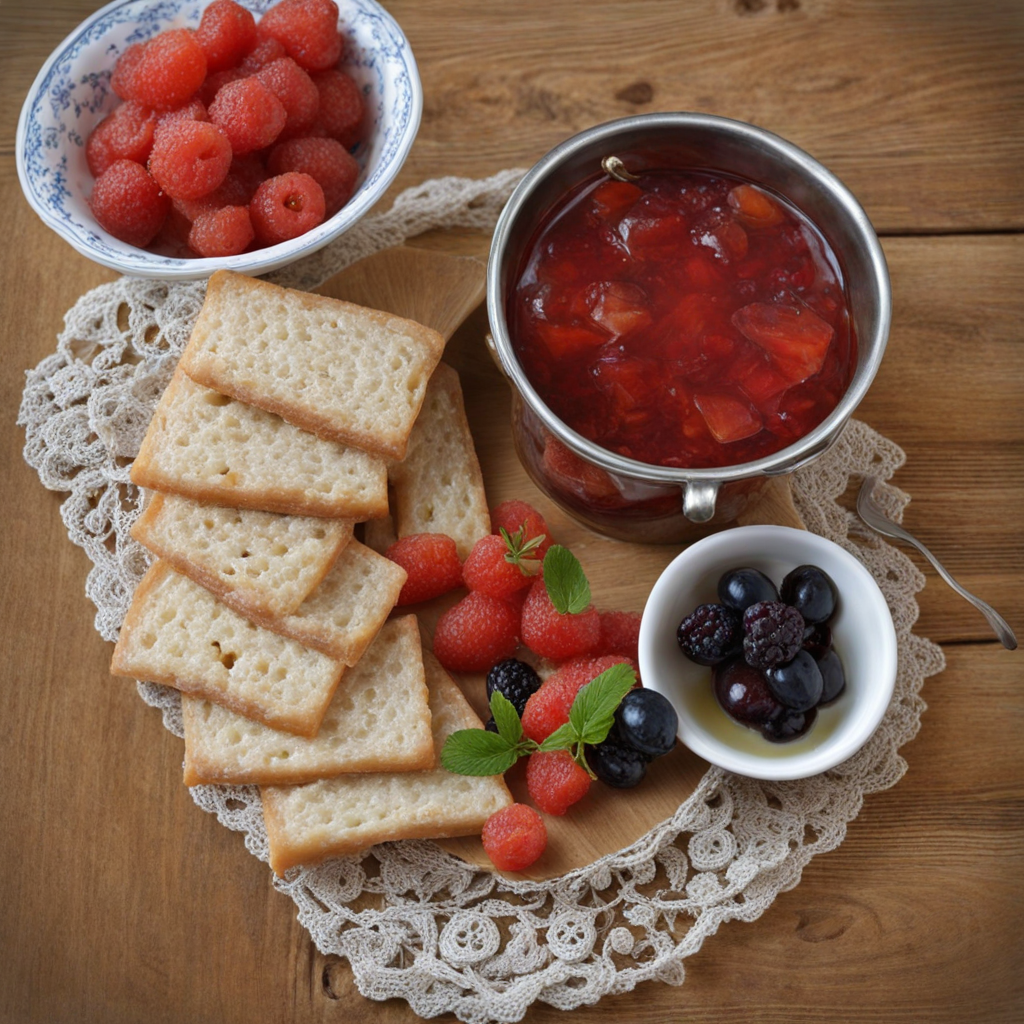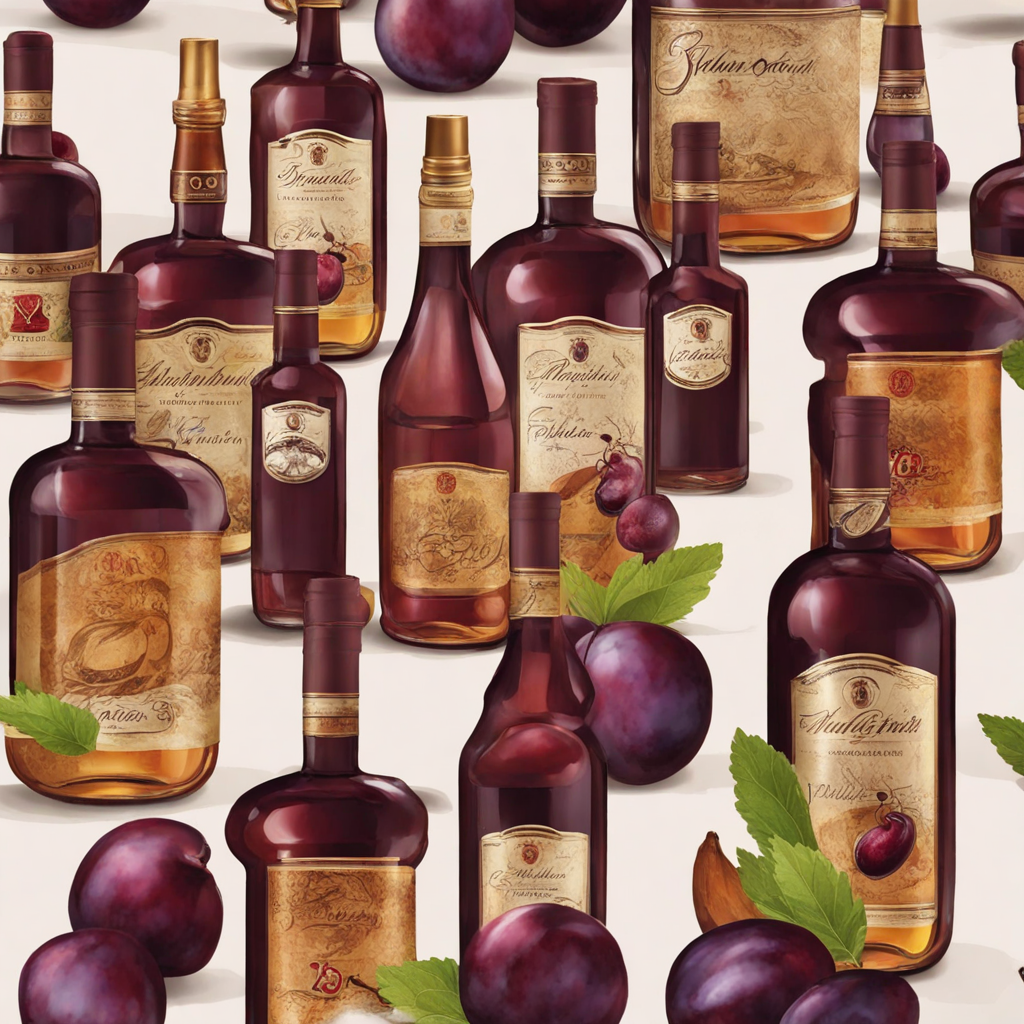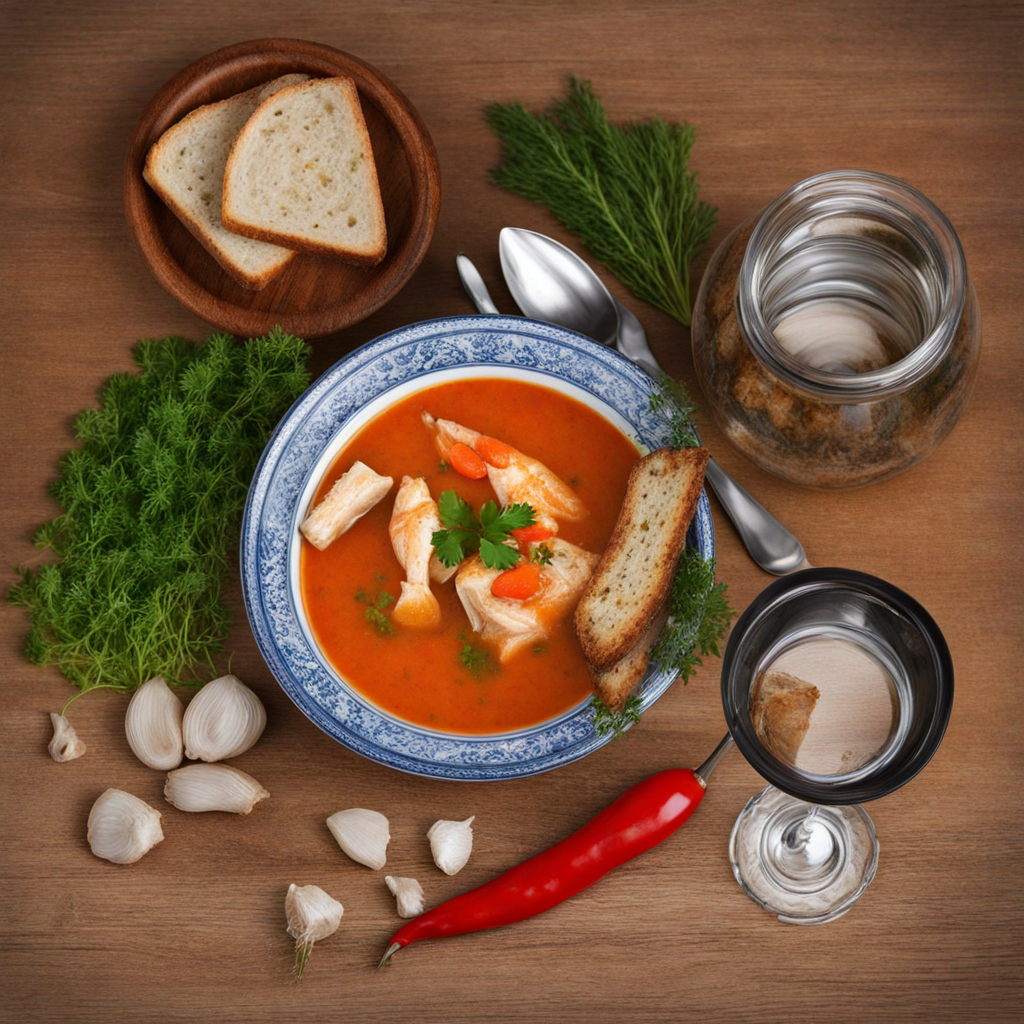Jabukovača
Jabukovača is a delightful Serbian spirit that captures the essence of homegrown apples, showcasing the country's rich agricultural heritage. This traditional fruit brandy is made by fermenting and distilling apples, resulting in a smooth, aromatic beverage that embodies the sweet and tangy notes of the fruit. Each sip offers a burst of flavor, reminiscent of crisp fall days in the orchards, where the apples are handpicked at the peak of ripeness. The careful craftsmanship involved in its production ensures that the natural essence of the apples shines through, making Jabukovača a true reflection of Serbian terroir. The production process of Jabukovača involves a meticulous approach, starting with the selection of the finest apple varieties. These include local favorites such as the fragrant Jonagold and tart Granny Smith, which contribute to the spirit's unique flavor profile. After fermentation, the liquid is distilled, often in traditional copper stills, to enhance its purity and character. The result is a clear, potent spirit that can range from sweet to dry, depending on the apple types used and the distillation techniques employed. Jabukovača is typically enjoyed chilled or at room temperature, often served in small shot glasses, allowing the drinker to fully appreciate its complex aromas and flavors. Jabukovača is not only a cherished beverage in Serbia but also a versatile ingredient in various culinary applications. It can be used to infuse dishes with a distinct apple flavor, added to marinades for meats, or even drizzled over desserts for a spirited twist. Whether sipped alone or incorporated into recipes, Jabukovača offers a unique taste of Serbia that invites exploration and celebration. Its rich history and cultural significance make it more than just a drink; it’s a connection to the land and its people, making every glass a toast to tradition and flavor.
How It Became This Dish
The Rich History of Јабуковача: A Serbian Culinary Delight Introduction Among the many culinary treasures of Serbia, one beverage stands out as a symbol of tradition, craftsmanship, and community: Јабуковача, or apple brandy. This potent spirit has woven itself into the cultural fabric of Serbian life, embodying not just a delightful taste but also a rich history that spans centuries. In exploring the origins, cultural significance, and evolution of Јабуковача, we uncover not merely a drink but a story of resilience, celebration, and identity. Origins of Јабуковача The roots of Јабуковача can be traced back to the ancient practices of fruit distillation in the Balkans. Apples, among the most cultivated fruits in Serbia, have played a significant role in local agriculture. Historical texts suggest that apple cultivation in Serbia dates back to at least the Roman era, when the region was part of the Roman Empire. It is believed that the knowledge of distilling fruit beverages was brought to the region through various cultural exchanges, including trade and migration. The word “Јабуковача” itself derives from “јабука,” meaning “apple” in Serbian, and “кача,” which refers to a type of vessel. The name reflects the beverage's primary ingredient and its traditional means of production. The earliest versions of Јабуковача were likely simple, homemade spirits crafted in small quantities, known as “rakija” in the broader context of Serbian alcohol production. The process of making rakija, including Јабуковача, typically involves fermenting fruit and then distilling it, a technique that has been perfected over generations. Cultural Significance In Serbia, Јабуковача is much more than just a drink; it is a social lubricant, a symbol of hospitality, and a key element of cultural celebrations. It is customary in Serbian households to offer guests a shot of Јабуковача as a welcoming gesture, reflecting the deep-rooted value placed on hospitality. The act of sharing this spirit fosters camaraderie among friends and family, creating bonds that transcend mere social interaction. Festivals across Serbia often feature Јабуковача as a central component. For instance, the annual Apple Festival in the town of Arilje celebrates the apple harvest with various events, including tastings and competitions for the best homemade Јабуковача. Such events not only highlight the importance of apples in Serbian agriculture but also serve to preserve the traditional methods of production that have been passed down through generations. Moreover, Јабуковача has a place in Serbian folklore and rituals. It is often associated with rites of passage, including weddings and religious ceremonies. During a Serbian wedding, for example, it is customary to toast with Јабуковача, symbolizing good fortune and prosperity for the couple. Additionally, in some regions, it is believed that the drink possesses medicinal properties, with locals consuming it to ward off colds or to aid in digestion. Development Over Time As the centuries progressed, the production and consumption of Јабуковача evolved in response to changing social, economic, and technological landscapes. The 19th century marked a significant period of transformation, as Serbia experienced a surge in nationalism and a revival of interest in traditional practices. This cultural renaissance led to a renewed appreciation for local foods and beverages, including Јабуковача. During the Austro-Hungarian Empire's influence over Serbia, the methods of distillation began to modernize. Distillers started to invest in better equipment, resulting in a purer and more refined product. This period also saw the emergence of commercial producers, who began to market their Jабуковача more widely. The spirit gained recognition not only within Serbia but also abroad, as Serbian immigrants carried their traditions with them, introducing the drink to new audiences. In the 20th century, particularly after World War II, the popularity of Јабуковача continued to grow. The introduction of cooperatives and larger production facilities allowed for increased distribution and more standardized quality. However, the essence of traditional production remained, with many families still choosing to craft their own Јабуковача using age-old recipes and techniques. The post-socialist era in the 1990s brought about challenges, including economic instability and shifts in consumer preferences. Nevertheless, this period also spurred a resurgence of interest in artisanal foods and local production. Many Serbs began to return to their roots, embracing homemade products, including traditional Јабуковача. This grassroots movement led to the establishment of small distilleries that focused on quality and authenticity, often using heirloom apple varieties unique to certain regions. Modern-Day Јабуковача In recent years, Јабуковача has seen a revival not only in Serbia but also in the global food and beverage scene. As the world grows increasingly interested in craft spirits, many producers are exporting their products, showcasing the unique flavors and characteristics of Serbian apples. The rise of agritourism has also contributed to this trend, with visitors flocking to rural areas to experience apple orchards and distilleries firsthand. Today, many distillers are experimenting with various apple cultivars and production techniques, creating a diverse range of flavors and styles. From sweet and fruity to dry and robust, modern Јабуковача offers something for every palate. Additionally, some producers are blending traditional techniques with contemporary innovations, such as barrel aging, to create unique expressions of this beloved spirit. Conclusion The history of Јабуковача is a testament to the resilience and creativity of the Serbian people. From its humble beginnings as a homemade beverage to its status as a symbol of cultural pride, Јабуковача encapsulates the essence of Serbian life. It is a drink that tells stories of family gatherings, celebrations, and the land from which it is born. As Serbia continues to embrace its culinary heritage, Јабуковача remains a cherished emblem of tradition, a spirit that not only warms the heart but also connects generations. Whether sipped during a festive occasion or enjoyed quietly in the company of friends, Јабуковача is a reminder of the richness of Serbian culture and the enduring legacy of its culinary practices.
You may like
Discover local flavors from Serbia


